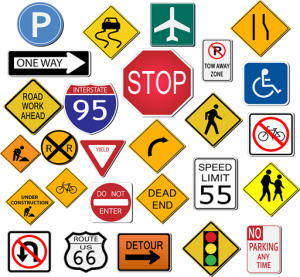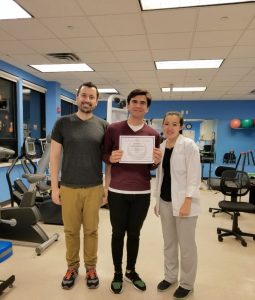 Like traffic signs for drivers and pedestrians, the human body will provide signals to alert us. However, just like traffic signs, these signals will have no effect if we refuse to acknowledge them. By the end of today’s post, I want you to be aware of the warning signs associated with multiple sclerosis.
Like traffic signs for drivers and pedestrians, the human body will provide signals to alert us. However, just like traffic signs, these signals will have no effect if we refuse to acknowledge them. By the end of today’s post, I want you to be aware of the warning signs associated with multiple sclerosis.
Before I share the warnings signs though, let’s address some specifics about this disease.
So, what is multiple sclerosis? Multiple sclerosis, also known as MS, is a disease of the central nervous system. Via this disease, interruption takes place in the way that the body shares information.
Because it’s an immune-mediated inflammatory disease that attacks the central nervous system, multiple sclerosis destroys the myelin and axons. Think of the myelin as a protective sheath formed around our nerves, and think of the axon as a nerve fiber that helps transmit signals of information to different neurons.
Due to damages in the myelin and axon, diminished function in parts of the spinal cord and brain will occur.
Although multiple sclerosis can happen in children, it’s more likely to manifest in adults between the ages of 20 and 50. Additionally, MS is more prevalent in women. In fact, cases of multiple sclerosis are three times more common in women.
In terms of prevalence, the disease occurs in most groups, but the risk is much lower for Asians, Native Americans, and Africans. However, the rate of multiple sclerosis is much higher for Caucasians of northern European ancestry.
In the United States, roughly 1 million Americans are living with the disease, and the states above the equator experience MS twice that of southern states. There’s still much uncertainty around this disease, so the scientific community unfortunately doesn’t have all of the answers presently.
With that said, we do understand certain elements of the disease, and this brings us to the core of today’s topic.
Early signs of multiple sclerosis
- Numbness and tingling – with damages to the nerves, there’s either an interruption in the transmission of signals, or this leads to no signals at all. For this reason, numbness and a tingling sensation becomes likely.
- Weakness – because of nerve damage associated with the spinal cord, unexplained fatigue becomes noticeable in parts of the body. For a large percentage of sufferers in the early stages of MS, unexplained fatigue is common.
- Muscle spasms and chronic pain – when you experience uncontrolled bodily movements, chronic pain, and even stiff joints, please pay close attention.
- Issues with vision – because MS affects our nerves, sight related challenges will happen when the optic nerve sustains damage (double vision or vision loss). Vision issues may occur in a gradual fashion, thus the effects will not seem dire early on.
- Cognitive decline – for a large population of people with MS, cognitive functions will face issues such as changes in speech (slurred), short-term memory loss, and shorter attention span.
- Diminished sense of balance – more common while standing, you’ll feel dizzy, lightheaded, or the sensation that the room is spinning (vertigo).
- Dysfunction with bladder and bowel movements – this ranges from inability to hold one’s urine, frequent urination, and even incontinence.
- Emotional health/personality changes – for individuals with MS, depression is common.
- Sexual dysfunction – this can include lack of sexual desire or erectile dysfunction.
- Difficulty swallowing
- Impairment with hearing
- Seizures and tremors
To determine an accurate diagnosis, your doctor will conduct a series of tests, neurological examinations, and gauge your medical history.
Although there is no cure for MS yet, all hope isn’t lost for individuals diagnosed with the disease. On the contrary, this is where I’ll step in as an occupational therapist. So, how can I help?
At the core of my practice, the aim is to create a sense of normalcy. In other words, the objective is to help you go about your day within the realm of your abilities. Separate from my customized treatment, I’ll provide tools to help you perform daily activities safely such as getting dressed, meal prep, working, etc.
As you become aware of warning signs, a doctor will then conduct tests to determine a diagnosis. From here, my goal is to step in and provide treatment as soon as possible.
At Occupational Therapy Concept, You’re Family. For a Free consultation, give me a call at (718) 285-0884 for further evaluation and customized help for multiple sclerosis.



